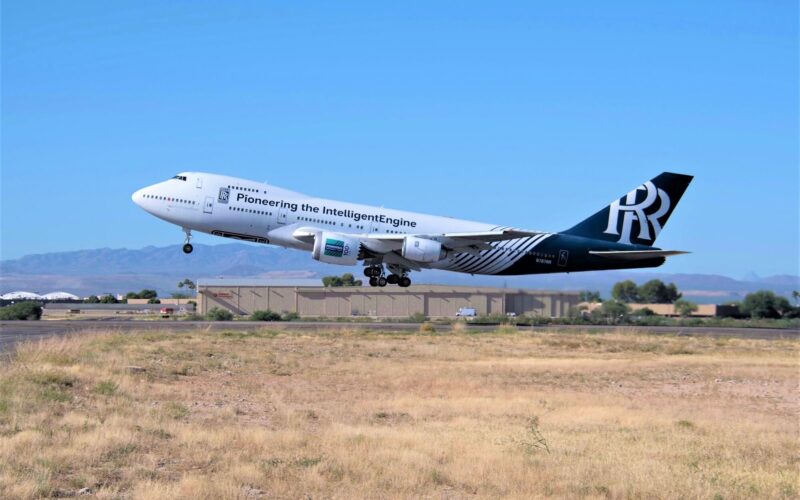British aerospace and defense manufacturer Rolls-Royce has entered the final phase of testing its Advanced Low Emissions Combustion System (ALECSys) demonstrator engine.
The engine was attached to the Rolls-Royce Boeing 747 Flying Test Bed and took off for a flight in Tucson, Arizona.
During the flight, the manufacturer assessed the performance of the engine demonstrator at an altitude of around 40,000 feet, and conducted several other engine relights under different conditions.
According to Simon Burr, the director of product development and technology at Rolls-Royce, the flight testing was successful. “We are very pleased to see the ALECSys engine now flying. This flight testing is a key part of our drive to not only improve engine efficiency but all aspects of environmental performance. It is part of the wider RollsRoyce sustainability strategy,” Burr was quoted as saying in the manufacturer’s statement, which was released on November 17, 2022.
The ALECSys demonstrator engine has already completed a set of ground tests, which included testing of water ingestion, ground operability, and icing as well as emissions and running on 100% Sustainable Aviation Fuel (SAF).
What is the purpose of the ALECSys demonstrator engine?
The development of ALECSys is part of the UltraFan engine demonstrator program dedicated to building the world’s largest engine which is expected to deliver a “25% fuel saving over the first generation of Trent engines,” the manufacturer noted.
ALECSys uses an innovative lean-burn combustion system to significantly lower jet emissions. According to the manufacturer, the new system improves the pre-mixing of jet fuel and air before ignition and this way enables cleaner combustion of the fuel, which then results in lower nitrogen oxide and other emissions.
“The ability to test ALECSys’ low-emissions technology in flight will allow the verification of altitude operability performance and provides the experience of operating a lean-burn system to maximize maturity ahead of a future entry into service,” Rolls-Royce explained in its statement.

